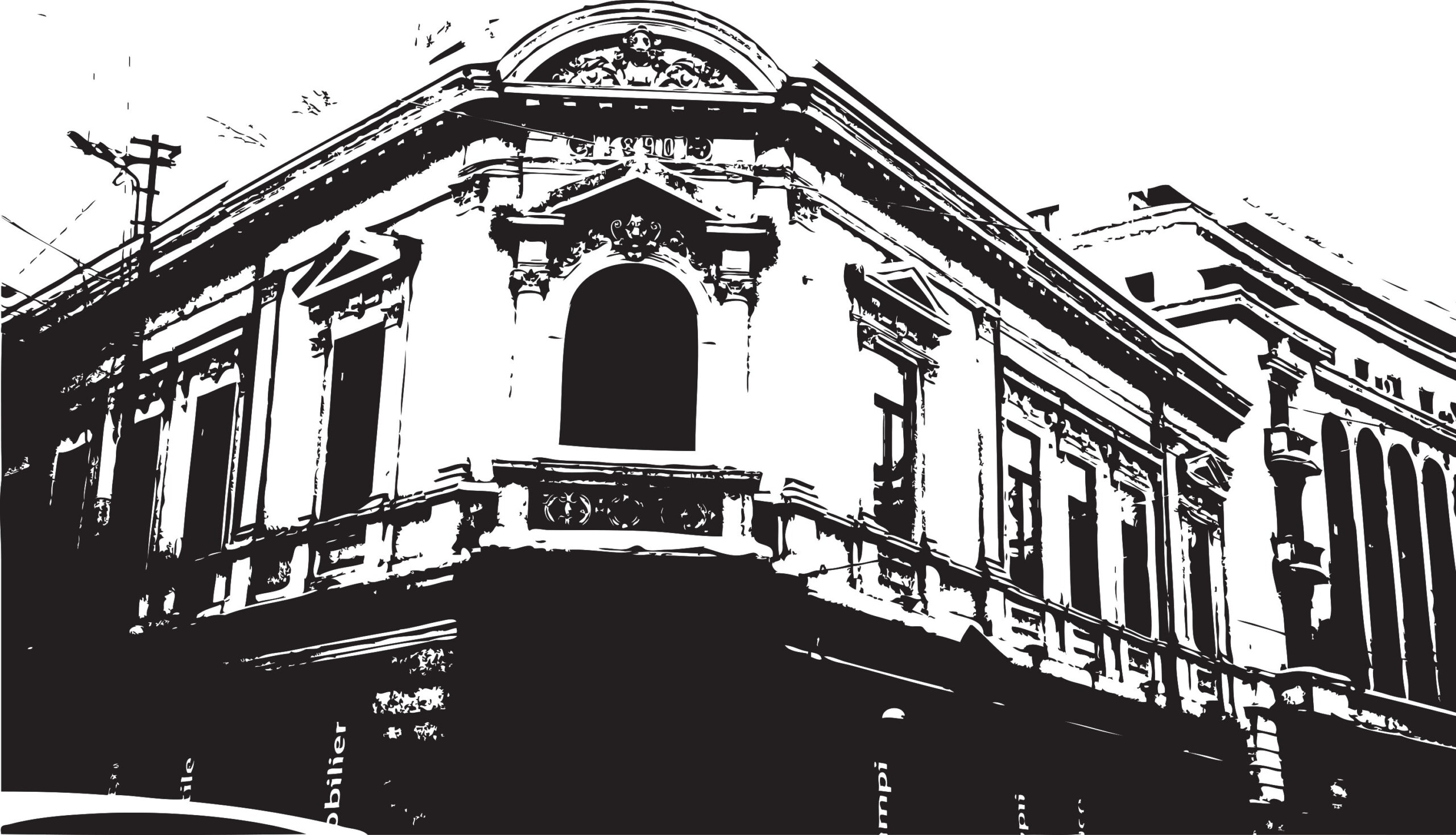The Story of Me – In the Beginning
I was born on an April afternoon in 1951 at the Botoşani Maternity Hospital. My parents and grandparents looked at all six pounds of me in wonder. The first child, the first grandchild.
Like every other Jewish child, I was given one name to use in my everyday life and another to use before God. The mundane world would know me as Liliana Strulovici, daughter of Adolf and Clarice. In God’s Book of Life, I would be inscribed as Hanna Ethel. The Botoşani I was born and lived in for the first ten years of my life was a dingy and forgotten little town in the north-east corner of post-World War II Romania where everything was in short supply. Only the ubiquitous fear of becoming the next target of the secret police – the Securitate – was abundant. And we had ever-present hope we would be allowed to leave Romania.
My family lived in one room of a two room apartment in the center of town. The apartment was located on the upper floor of 222 Calea Nationala in a building once owned by my grandfather and his brothers. It was located right across the street from the “Birjarie,” the horse and buggy station. The main modes of transportation within town were walking, biking and anything driven by horse power. Busses made an appearance in the late 1950s and cars were almost non-existent. Any car that stumbled into town caused quite a commotion. A black limo bearing the stars and stripes drove into town by the 7th of November movie theater. It was escorted by a good portion of the town residents trying to get a peek at both the car and the Americans. Of course, since our house was catty corner to the movie theater, we had a great view from our balcony.
We had a great view of other events that paraded through the center of town. There were open casket funerals, marching soldiers, town residents going about their daily lives, gypsies dressed in colorful costumes collecting the dung the horses left behind. There was even that sink hole that opened up in the small garden located across the street from the 7th of November movie theater.
Botoşani had, actually, once been a hopping place, a major trade center where merchants and artisans could ply their wares. Jews came to Botoşani because of the growing business opportunities. They stayed because, well… frankly, they stayed because, even though they were restricted in their choice of a profession, they were allowed to stay and live as Jews. They became the merchants and the craftsmen – the tailors and potters and shoe makers. In spite of the frequent anti-Semitic decrees and notwithstanding the many epidemics and sporadic pogroms, the community thrived. By 1900, there were more than 15,000 Jews in Botoşani – 51% of the population. The town continued to flourish until the Second World War.
By the time I came along, Botoşani had lost its vigor. The grey reality of everyday life was dominated by the Socialist dictatorship that had swept into power on the coattails of the victorious Soviet Red Army after the Second World War. The end of that war, just six years before my birth, left two remaining superpowers – the United States in the West and the Union of Soviet Socialist Republics (the USSR) in the East. Each, along with its allies and vassals, engaged the other in a conflict that became known as the Cold War; so called because war between the superpowers, though constantly threatened, was never declared and battles large and small were fought in their stead by their numerous proxies.
The Soviet Union was ruthless in the subjugation of its vassal states. Those that strayed, such as Hungary in 1956 and Czechoslovakia in 1968, were invaded and forcibly returned to the fold. Throughout the Soviet bloc, people were told what they could say, do and even think. Listening to a prohibited radio program or criticizing the government were “crimes” punishable by imprisonment or even death. People were encouraged to spy on their friends, neighbors and even family and to report anyone who did not toe the party line. Those that dared to think or speak differently or were suspected of thinking or speaking differently were arrested, forced to do hard labor, often tortured and, at times, summarily executed. There was no freedom of speech. And there was no freedom of the press. There was no freedom at all… only fear.
Food shortages and long queues for basic necessities were a daily occurrence. Still, thanks to the perseverance of my mother and her father, we were never hungry even if all we had to eat was black bread and onion. My mother and grandfather stood in lines for hours to bring home their meager finds, be it food to eat, a propane tank for cooking or buckets of water when the running water in our apartment didn’t. But, on that April afternoon, I knew nothing of what had been in Botoşani. I was newly arrived in this world and knew only that the world was populated by people who loved me and nurtured me. And I knew nothing of the war that had only recently ended, almost killing my parents and thus almost robbing me of the chance to be born. I cared nothing about the Communist dictators who had recently come to power and were enriching themselves by expropriating the houses, factories and restaurants built by my grandparents. The cocoon created by my parents and my grandparents and it was full of love was the only thing I did know.
And so it went. Cold Botoşani winters with snow on the ground from October to April turning into hot summer days and cool nights. The winter months were very cold although I don’t remember ever feeling cold. The rooms were heated with a “sobǎ”, a terracotta oven that reached from floor to ceiling, The “sobǎ” burned wood or, when wood was not available, sunflower seeds. We often ventured out, in spite of the cold and the fact that the snow that fell remained on the ground and on the streets until it melted.
The summer months were more relaxed. Every day was like the other. Each morning, we had a “play date”. We would meet my mother’s friends and their children at various parks or we would go visit uncle Iacob. Uncle Iacob lived in a big house with an even bigger yard filled with fruit trees. We ravaged his garden, eating the fruit directly from the trees and the sunflower seeds directly from the sunflowers.
One of the few things that I remember well is the pervasive presence of my grandfather, Iosub. I know that I did other things, was with other people, but what I remember most fondly is my grandfather, Iosub, sitting next to me by the window in his room or walking the streets of Botoşani, telling and retelling me how life had been not so long ago before the Communists came and took it all away. He showed me the properties and factories that once belonged to the Strulovici Brothers, describing in detail the Jupiter Restaurant, the wine depository, the soda factory. He tasked me to remember the stories and tell them to my children and my children’s children. I did not fully appreciate the burden of memory he had bestowed upon me. To me, his stories were just stories… no different from Robinson Crusoe or the Grimm fairy tales.
In the better days, before the Nazis destroyed most of Jewish Botoşani, before the Communists confiscated what the Nazis left intact, the building at 222 Calea Nationala was one of several properties owned by my grandfather, Iosub, and two of his three brothers. The ground floor housed the Jupiter restaurant and several storefronts that were leased to a variety of vendors. The restaurant had a large pub, two large banquet halls, and, during the summer months, a side-walk café. There were two entrances to the building; one directly from Calea Nationala into the restaurant and the second through a forged iron gate that led into an internal courtyard.
From this courtyard, family, staff and guests could go to the right to the back entrance of the restaurant and the kitchen, to the left for the rest rooms and straight ahead to the circular stairway that led up to our living quarters or down to the cellar. This I knew from my grandfather. By the time I came along, after “Romanization”, the restaurant was gone, the kitchen was no longer in use, and the courtyard was occupied by a food cooperative and an assortment of well-fed rats. Although the gate was still in place when I left in 1961, both the gate and the courtyard are now gone. Today, the once elegant house is in total disrepair, its façade pot-marked, its paint faded, the balconies held up by cables.
It was only after I started school that I began to understand that it was not the economic hardships that tormented us but the discrimination and intimidation at work and school. We were considered “defective” because my father had refused to join the Communist party and our family had been well off before the second war. We were denied work and education commensurate with our abilities regardless of honors earned but not received, test scores achieved but not acknowledged.
Finally, in September 1961, we received permission to leave Romania. Three weeks later, we were standing on the platform of the of the Bucharest North Train Station waiting to board the train that would take us to Paris and beyond, We did not know where we would end up but the choice would be totally ours.

